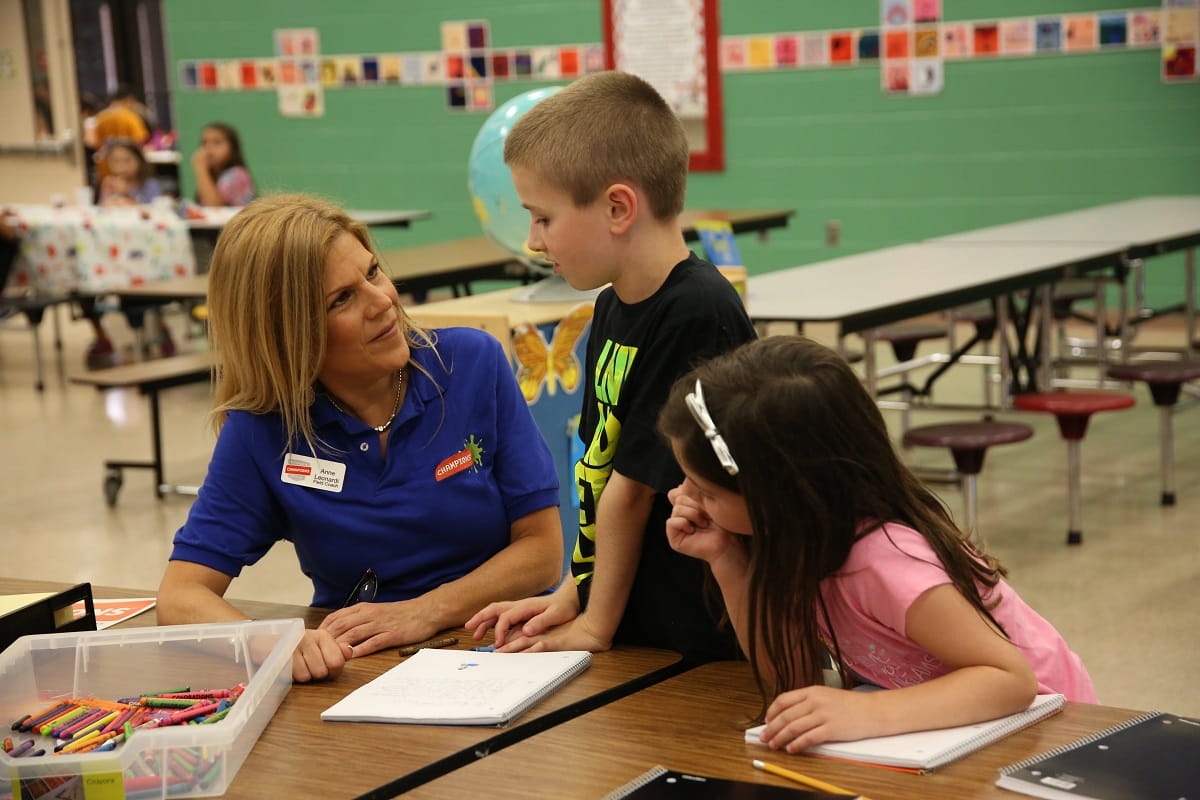Follow Her Dreams: How to Help Your Child Find Her True Passions

To her elementary-aged students, Anne Leonardi is a real yes-woman. “I don’t like to say no,” says Leonardi. “I like to say, ‘Absolutely!' And I always follow children's lead.’”
A site director of the Champions before-and-after-school program at Dugan Elementary in Marlboro, New Jersey, Leonardi also won a 2015 KinderCare Educator Legacy Award. Her yes-we-can approach means students are given plenty of encouragement and support to explore their own interests—no matter what their interests may be. With Leonardi’s help, the kids have started a debate club, a journaling club, a creative arts club, and even a building-blocks club.
Try her positive approach and help your child seek inspiration of his very own:
Check in. Ask her what she's been thinking about lately.
A child's interests change and evolve over time. Family life can be super busy but you can take a little break to check in with her. Use the ride back from soccer practice, or sit down together 15 minutes before you start the dishes and ask about her interests: What happened today that was exciting? What have you been thinking about?
Be open, curious, and respectful of his feelings.
Hear the needs and wants of your child. You don’t have to shy away from—or sugar coat—the tougher stuff. If your child complains that music lessons are boring, for example, hear what he’s feeling and ask: What’s boring? What don’t you like it? What might you like better? Together, you might discover something that he’s really excited about. Maybe it’s a totally new activity, like ice hockey, or maybe it’s a small shift that makes a big difference, such as switching from piano lessons to guitar lessons.
Provide her passions with a way to grow.
Following a passion takes time, so help make some for you child. Is there a class she can sign up for? Can you visit an exhibit at a local museum? Will a weekly trip to the library give her the time she needs to explore dinosaurs? Even setting aside a place and time at home can be enough to get started. If it’s dinosaurs that she loves, create a special dinosaur journal together. She can decorate it herself, and record what she learns inside.
Brainstorm ways to fit his passion into your family's life.
A newfound interest in writing doesn’t mean that your child can skip his math homework (or abruptly quit going to the gymnastics lessons that have already been paid for). “There are things that we have to do, but I’m on the child’s team,” says Leonardi. “We work together, help each other out, and find a way to make it work.” Be sensible: Your little novelist can start writing after he’s finished his homework. And get creative: Maybe he can spend the remainder of his gymnastics lessons interviewing the coaches and writing a story.
Encourage her to share the passion together and with others.
“As human beings, we learn from each other,” Leonardi says. If your child is really excited about firefighters, find out about visiting a local fire station. If your child loves art, check out an open studio and ask local artists questions about how they work. Simply tackling a new project with a sibling or friend can make a big difference, because younger children learn from the older ones, and bigger kids learn through teaching the little ones.
Stay open to his changing interests.
Interests may change rapidly, and that's okay. If your child expresses an interest in something new, make space for his curiosity. It lets her know that his opinion is valued. “Children don’t always have to do everything that’s on their schedule,” says Leonardi. “If they’re curious or want to do something creative, then I’m excited.”




.jpg?la=en&h=800&w=1200&hash=799F5BD6E84A71FB0D1C8E657FE7F226)
